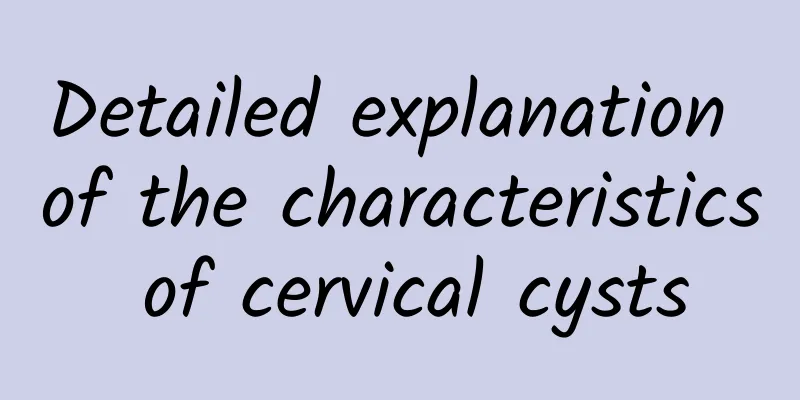Is there any medicine specifically for pelvic peritonitis?

|
Some patients never thought that they had always felt that they were in good health and had never felt any physical discomfort, but now they were diagnosed with a chronic disease and almost lost their right to be mothers. They have not been able to get pregnant and have taken many medicines but to no avail. Finally, they came to the hospital and found out that it was all caused by chronic pelvic peritonitis. Pelvic peritonitis, especially chronic pelvic peritonitis, is a very common disease. In my country, the incidence of pelvic peritonitis is very high due to the limitations of personal hygiene and medical conditions, or the lack of awareness of aseptic operation in minor gynecological and family planning surgeries, and the widespread use of intrauterine contraceptive devices when patients do not pay attention to personal hygiene. Since pelvic peritonitis is an inflammation of multiple organs inside the uterus, if it is not treated in time and scientifically, it is easy to cause adhesions of tissues such as the fallopian tubes, leading to infertility. At present, pelvic peritonitis has become an important cause of infertility in women. Although pelvic peritonitis is very harmful, it is easy to be ignored because the harm of pelvic peritonitis, especially chronic pelvic peritonitis, is slow. Even if some people occasionally feel unwell, they just take some antibiotics and anti-inflammatory drugs at random, and stop the treatment once the inflammation is relieved, which is very irregular. There are also many patients who take anti-inflammatory drugs as the main treatment method regardless of their condition. As a result, it is not only useless for treating the condition, but sometimes even harmful to the body. Since the pathogens of pelvic peritonitis are pyogenic bacteria, diplococci, tuberculosis bacteria, fungi, spirochetes, protozoa, etc., the main drugs for the treatment of pelvic peritonitis in clinical practice are antibiotics. When using drugs to treat pelvic peritonitis, one must grasp the timing and decide whether to use drugs based on the condition of the disease. Antibiotics should not be used whenever there is pelvic peritonitis. Many patients with chronic pelvic peritonitis take antibiotics for a long time in order to completely cure the disease. In this regard, antibiotics are generally used in the acute stage. The effect of taking antibiotics in the chronic stage is not obvious, especially when the inflammation progresses very slowly. The use of antibiotics has almost no effect. Physical therapy is generally used to treat chronic pelvic peritonitis. If there is tubal adhesion, salpingography or surgery can be performed to clear it. If patients with chronic pelvic peritonitis use medication, they must choose the medication and the timing of medication under the guidance of a doctor, and cannot use antibiotics blindly without authorization. |
<<: What medicine is effective for pelvic peritonitis
>>: How to use Chinese patent medicine to treat pelvic peritonitis
Recommend
Women should pay attention to the increase of leucorrhea and be alert to the occurrence of adnexitis
In our lives, women are more likely to suffer fro...
Common causes of pelvic inflammatory disease
Women often experience low back pain due to their...
OL weight loss technique! Fitness coach recommends 3 tricks to lose weight easily by watching TV series
After a hard day at work, many office ladies get ...
What are the dangers of ovarian cysts and how to prevent them
What are the dangers of ovarian cysts? How to pre...
What should I put in chicken soup for uterine fibroids? What soup should I drink to treat uterine fibroids?
What to put in chicken soup with uterine fibroids...
Do you know what the symptoms of dysmenorrhea are?
Do you know about dysmenorrhea? How much do you k...
Is medical abortion better or surgical abortion? Which one causes less harm?
Medical abortion and surgical abortion each have ...
Too much sugar is the root of all diseases! Japanese famous doctor's "sugar-restricted diet" reduces body fat and loses 10 kg in half a year
The famous Japanese doctor Koji Ebe created the &...
What foods should women avoid during the recovery period after abortion?
After undergoing an abortion, women should pay at...
How to provide nursing care for patients with ectopic pregnancy
It is very common for women to have ectopic pregn...
What are the causes of dysmenorrhea?
Nowadays, many women have dysmenorrhea. In fact, ...
How to eat healthy breakfast for weight loss? 9 superfood combinations to make a non-fat diet
How should you eat breakfast if you want to lose ...
Is the cure rate of vaginitis high?
Is the cure rate of vaginitis high? The occurrenc...
Uterine fibroids can also be seen through uterine bleeding
Uterine fibroids can also be seen through uterine...
What is the correct nursing measure for pelvic peritonitis?
Pelvic peritonitis often occurs in women who are ...









